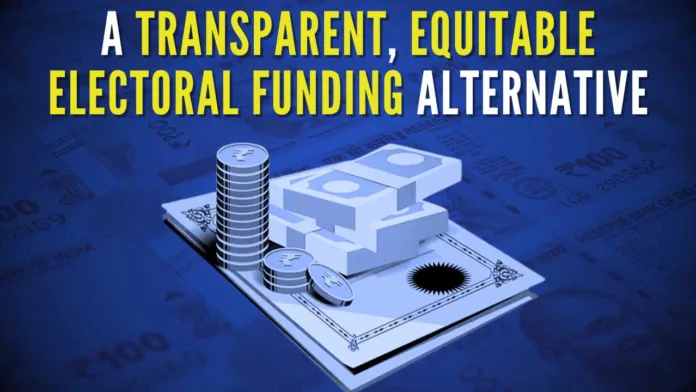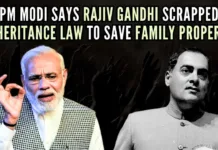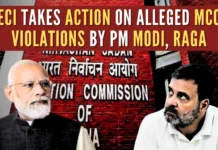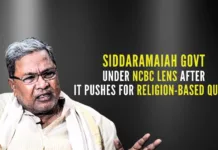
Innovative alternative to Electoral Bonds
In light of recent developments concerning Electoral Bonds, it is imperative to reassess the structure of political funding in India. This article presents a comprehensive alternative aimed at fostering transparency, legality, and fairness in political financing, while simultaneously combating corruption.
Supreme Court’s scrapping of Electoral Bonds, which is a step in the right direction, allows us to re-visit the issue and explore alternatives from first principles.
As we all know, political corruption is one of the biggest challenges India (and in fact, the entire world) faces. In developed countries like the US, people have come to accept corporate funding of political parties in the name of lobbying. I believe, as a society, we won’t be able to accept it likewise, and rightly so.
In fact, this is not a new suggestion. I presented it in the form of an article published by PGurus almost 5 years back, on July 9, 2019[1].
The cost of corruption is orders of magnitude higher than the actual amount of corruption money involved. If there is even 15% end-to-end corruption (a very low % by today’s corruption standards) in laying a road or any other government project, the actual monetary and non-monetary cost suffered by the government and the society is very likely to be much more than the cost of the project itself.
Though, to some extent, the problem is with the kind of people who come to politics, it’s basically systemic. Power, by itself, corrupts. You and I who complain about corruption may also behave no differently if we were to have political power.
There can be no foolproof checks and balances. And checks and balances tend to make governance inefficient. AAP which entered politics promising to clean it, has been exposed to be mired in corruption and has no qualms about allying with the very same parties which they wanted to completely eradicate from politics.
How do we change this system?
If, as the SC appears to want, there should be no ‘quid pro quo’s in the process of political funding by Corporates, then neither the pre-EC-Bond model of payment by cash nor the EC-Bond model will meet this requirement.
The opposition is not exactly in agreement with the SC on this, but they are cheering the SC only because it is the BJP that is being subjected to grilling, though almost all the parties have benefitted from EC Bonds.
We need to think outside of Corporate funding of elections. We need a political reform by which most of the wrong people would find it unviable to be in politics and many competent and well-meaning people would feel encouraged to enter politics.
If this were to happen, politics would become a true battlefield of ideologies. The role of black money power in politics would diminish substantially.
How can we make this happen, if at all?
Since the cost of corruption is several times the bribe and even more than the cost of the projects, we can allocate a small % of the national, state, and local body budgets (say 1-2%, or even more, arrived at after enough thought) in funding political parties, not just for elections, but also to meet all their costs all through the year. Allocation to each party can be based on a combination of factors like % of votes polled in previous elections, number of seats won, etc.
If the “One Nation, One Poll” model were adopted, the number of full-time political workers could be (hopefully) minimized in every party.
Though funding political parties from government budgets may appear like an additional cost, this move will actually save a lot of money for the government and society, as the outcomes from the projects will be much more, and we won’t have to keep re-doing public works, like roads, cables, maintenance of machinery, etc.
Once this is done, political parties and individuals may not be allowed to bring in Corporate or even own money into politics; if any party/ individual violates it, the punishment could be so stringent that they dare not even think of doing it.
Corruption can then be enacted as a crime worse than murder, and punishment can be up to life imprisonment. It is justified because it’s a crime against the State and its entire people.
Once a prima facie case is established, the onus could be on the accused to prove one’s innocence, like in DA cases.
False complaints may also be treated as equally grave offences, discouraging anyone from making false allegations against honest politicians.
Corruption in the judiciary and bureaucracy can also attract similar stringent punishment.
Some of the ancient kings had similar laws.
This could disincentivize corruption so much that corrupt may stay away from politics. If they still get into politics, they could soon be behind bars. And honest and competent politicians and bureaucrats can thrive.
With most holes plugged, GDP growth could go beyond double digits easily.
There can’t be a better time to make this reform than during Modi 3.0.
Modi is expected to get a massive mandate in the 2024 LS elections, due to the faith people repose in him personally. So, MPs, MLAs, party members, and allies can’t dictate terms to him.
He wants to leave an indelible impression about his contribution to building a modern India. This reform will help him accomplish this.
He can become one of the most outstanding political icons of all time in the world over, eclipsing even Lee Kuan Yew of Singapore.
Will he do it during Modi 3.0? Though very difficult, I hope he will find a way to do it!
Note:
1. Text in Blue points to additional data on the topic.
2. The views expressed here are those of the author and do not necessarily represent or reflect the views of PGurus.
References:
[1] Mother Of All Reforms: Will PM Modi Do It? – Jul 09, 2019, PGurus.com
- How BJP can get 33%+ vote share in TN - April 1, 2024
- A transparent, equitable electoral funding alternative - March 19, 2024
- How TN BJP can come to No. 1 or No. 2 in 2024 LS polls - January 11, 2024










